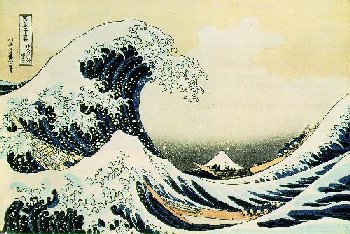Another take on surfing.
Standard internet historiography holds that the term "web surfing" is a derivation of "channel surfing", better known as zapping - compulsive clicking on the remote control of a television in order to move from channel to channel, or from program to program, without ever getting truly involved in any of them. According to this definition, web surfing is an activity that has no real direction, or even purpose. The web surfer becomes a desk potato instead of a couch potato, but a potato just the same.
I prefer to derive the term from a different, more primary source: the ocean.

I think I've been on a surfboard only once in my life, and I certainly didn't learn to ride the waves. Still, the concept of surfing, of catching a wave and staying with it for an extended period of time, is very different from the zapping of channel surfing. In all of my introductory classes to the internet, and in many of my lectures on various aspects of the internet, I use this famous Hokusai print. For me it suggests a wholeness that finds expression in surfing. I hope that people new to the internet will get a feel for the beauty of the waves of information that they're about to ride. Perhaps they'll understand that it's not the separate pages, interesting as they may be, that attract the experienced web surfer, but instead the experience of making coherent sense of the ride. Of course I'm exaggerating, but perhaps their surfing can help them approach a higher consciousness. In a wave, each drop of water is a whole unto itself, but the wave is much more than those drops. The wave passes through them, maintaining its form even though its made up of constantly changing components. Are the pages of information we encounter on the web only the individual drops of some as-yet intangible whole of information that we ride?
Go to: Bringing it all back home, or
Go to: There for the looking, or
Go to: The Church of the Eternal Click.

